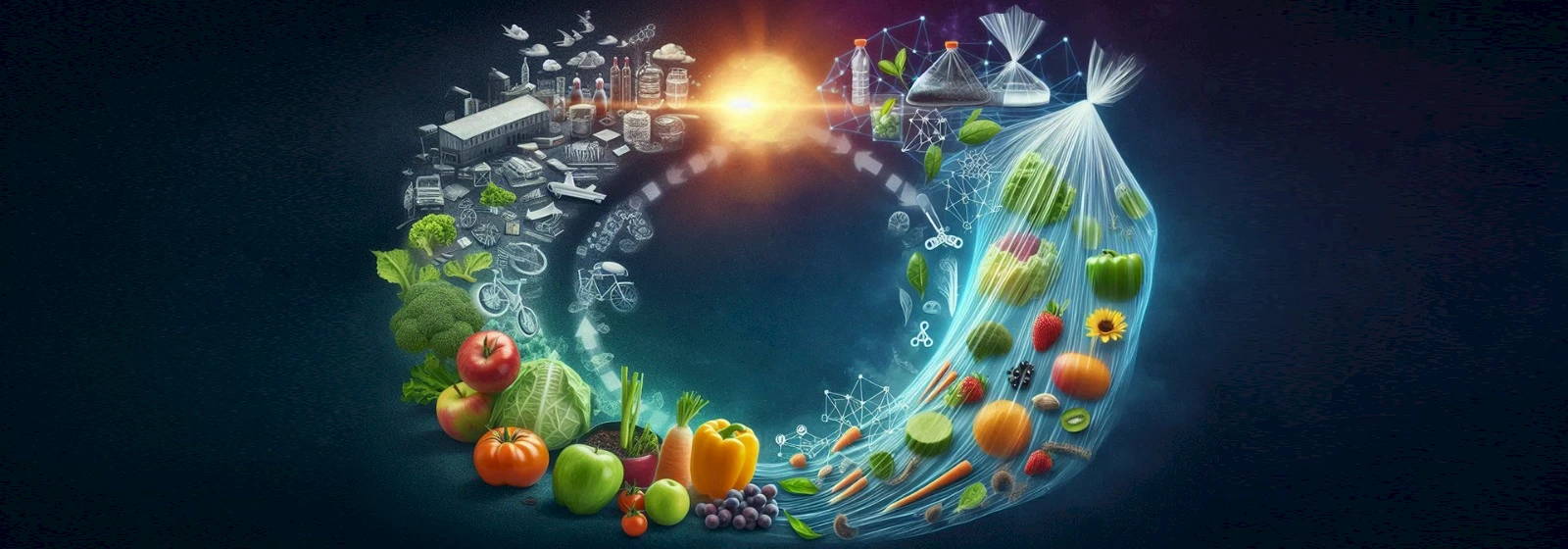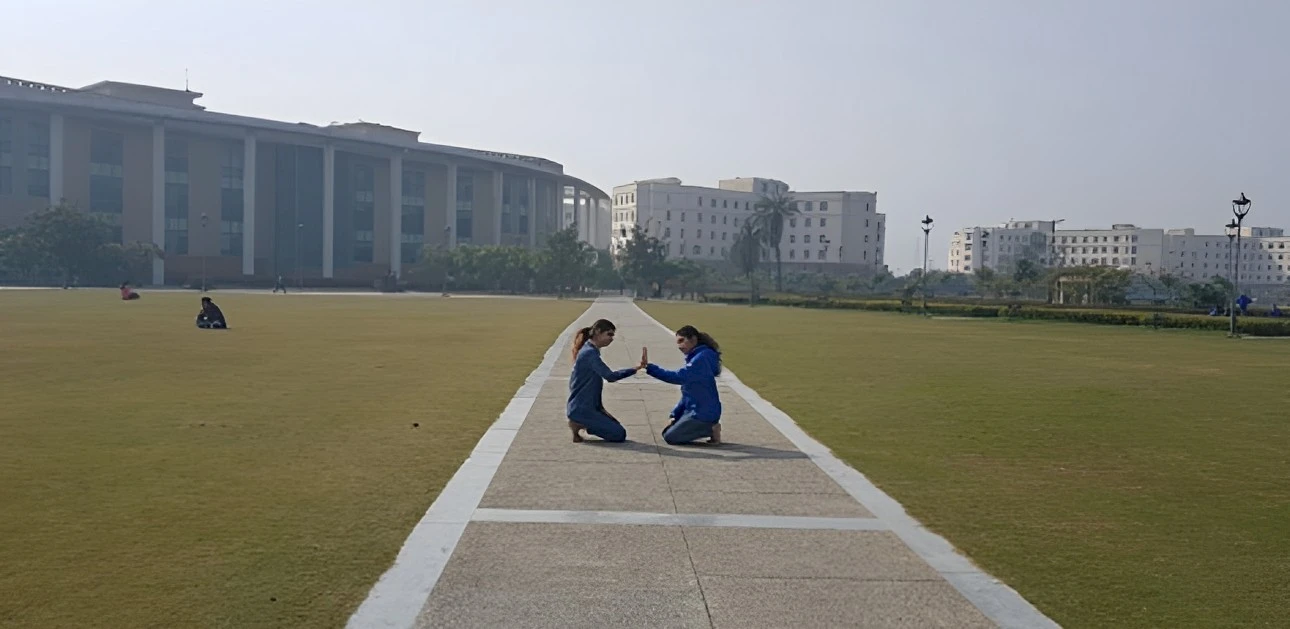Solutions of tomorrow: Bio-degradable food wrapping

Editorial / September 10, 2024
Answers to some of the biggest man-made disasters inflicted on nature can sometimes be found in nature. All it requires is to know where to look. Dr. Yamini Sudha Sistla, Associate Professor, Department of Chemical Engineering, School of Engineering, has done that in her research on biopolymer-based packaging films.
Looking for a component to create a sustainable solution to replace single-use plastic in food packaging, she has used pectin biopolymer to develop composite thin films that can be used as bio-degradable wraps for vegetables and fruits to significantly spike their shelf life and cut hazards to the human body and nature.
In her search for an appropriate biopolymer component, Dr. Sudha looked at how nature provides solutions to keep fruits and vegetables fresh.
She found the answers from the wraps nature provides in abundance, like bananas, oranges, and sweet lime, to extract pectin, a prospective biopolymer. Fused with castor oil, clove oil or cocoa butter, the mixture provides a natural coating for eatables to replace synthetic wax currently used to give fruits gloss and longevity. The exact compositions can also be used to create thin film wraps, leading to cuts in single-use plastic usage.
Plastic pollution is a global problem. According to the United Nations Environment Programme, 19-23 million tonnes of plastic waste leak into aquatic ecosystems yearly, polluting lakes, rivers and seas. Besides the damage done to nature, microplastics or tiny plastic particles have found their way into the bloodstreams of almost all living organisms.
“This research in the university’s Sustainability and Advanced Materials Lab began in August 2018. Our research group is focused on developing a sustainable and green solution for the problems associated with wax-based coatings to improve the shelf life of fresh produce and single-use plastic-based packaging films. Therefore, we began working on developing biopolymer-based bio-degradable films and coatings. We are currently working to identify potential biodegradable additives and process conditions to produce coatings and films with the required barrier and mechanical properties,” says Dr. Sudha.
Working with state-of-the-art equipment like the Environment Chamber, Thin-film stress measurement setup, and Ultrasonic homogenizer, Dr. Sudha and her research group have successfully produced small films (10 cm diameter) with improved properties compared to pure pectin films. The research activities done in the lab include molecular modelling, process modelling and simulation, and experiments. “We are now working on process-related improvements to scale up (producing large films) the film production with required physical, chemical and mechanical properties,” says Dr. Sudha.
The research has provided a fertile ground for Ph.D. and undergraduate students to explore new vistas in fundamental investigation. Since 2018, one student has completed Ph.D. on this topic. Four students of the university’s Opportunity for Undergraduate Research (OUR) programme and four B.Tech students have contributed significantly to developing several formulations to understand the optimum ingredients and process conditions to produce films.
The research done by Dr. Sudha is of pivotal importance as it is directly linked to SDG 3 (good health and well-being), SDG 11 (sustainable cities and communities), SDG 12 (responsible consumption and production) and SDG 13, 14 and 15 (Climate action, life below water and life on land).
Dr. Sudha’s research has received a grant of Rs 20.68 lakhs from the government’s Science and Engineering Research Board (SERB) under the SURE scheme. Playing a crucial role in reducing dependence on plastic, Dr. Sudha says her research could be the beginning of a new wave in making a big difference to the world around.
More Blogs

The Hawthornden Literary Retreat bestowed on Dr Sambudha Sen to complete the manuscript of a novel
Professor Sambudha Sen, Head of the Department of English at Shiv Nadar Institution of Eminence, Delhi-NCR, was awarded a residency at the...

The Power of the Moving Body
Movement is an innate bodily action that humans have been exhibiting for the longest time. Long before language was invented, the body was the...

How Does A Multi-Disciplinary Approach To Education Enhance Learning And Prepare Students For A Multi-Faceted World?
In today’s world, where businesses are changing almost every day, it is the responsibility of educational institutes to provide holistic...